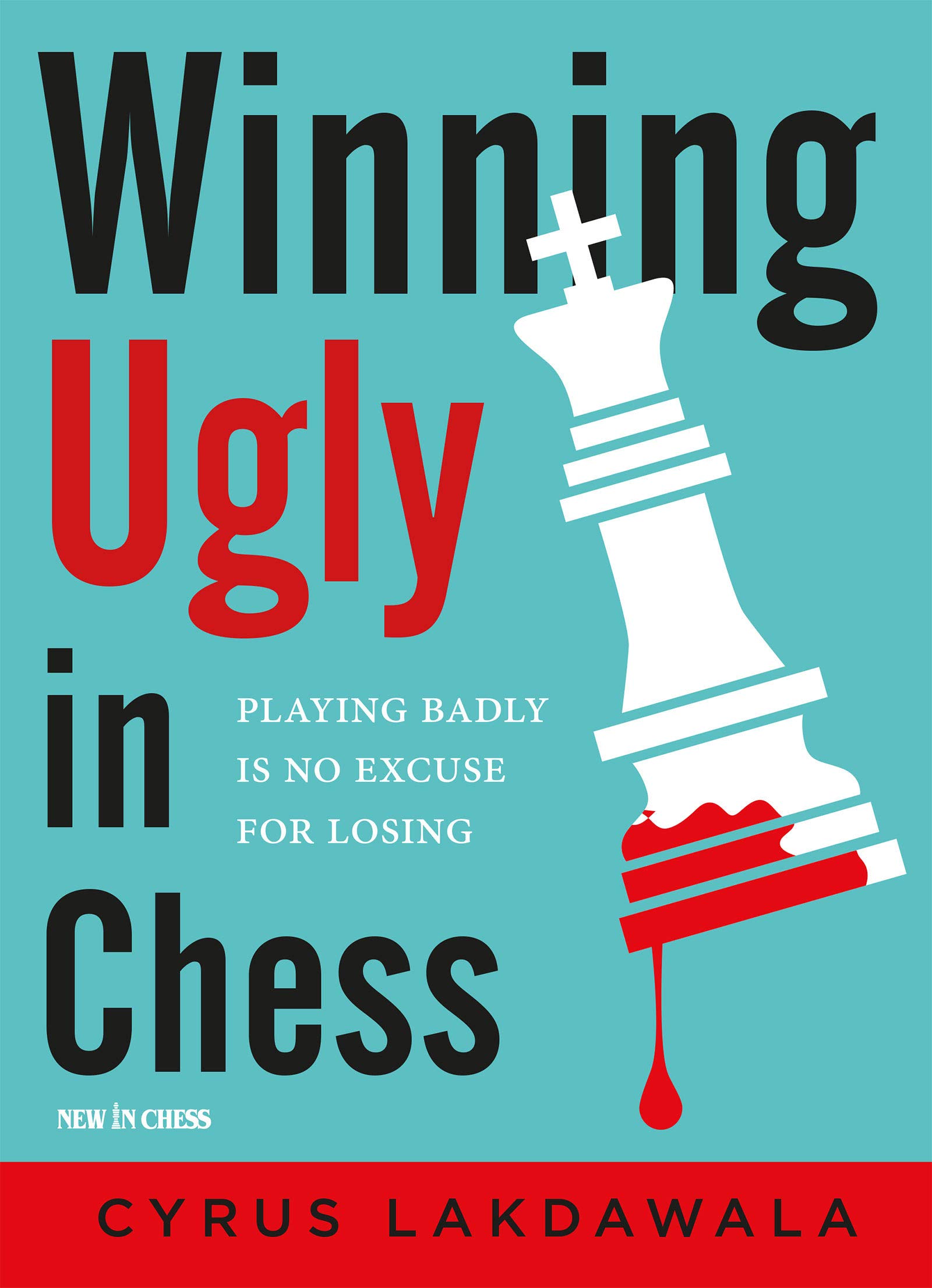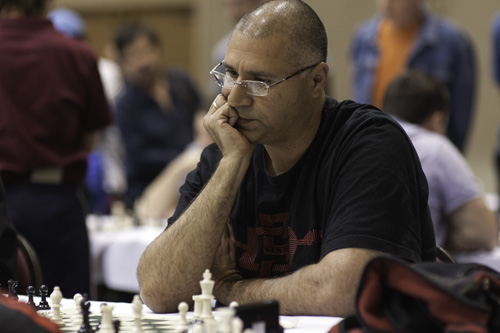
Cyrus Lakdawala is a former American Open Champion. He has been teaching chess for four decades and is a prolific and widely read author. His ‘Chess for Hawks’ won the Best Instructional Book Award of the Chess Journalists of America (CJA). Other much acclaimed books include ‘How Ulf Beats Black’, a study of Swede Ulf Andersson, and ‘Clinch It! How to Convert an Advantage into a Win‘. He has become one of the most controversial writers around today!

From the cover : Welcome to the world of imperfection! Chess books usually feature superbly played games. In this book you will see games where weird moves are rewarded. Cyrus Lakdawala knows that playing good chess is all very well, but that beating your opponent is better. A paradox? He demonstrates the fine art of winning undeserved victories by: miraculously surviving chaos; throwing vile cheapos; refusing to resign in lost positions; getting lucky breaks; provoking unforced errors, and other ways to land on your feet after a roller-coaster ride. Lakdawala shows how you can make sure that it is your opponent, not you, who makes the last blunder. If you’d rather win a bad game than lose a good one, then this your ideal guide. The next time the wrong player wins, you will be that player!”
We have an Index of openings (rich in Sicilians and King’s Indians), an Index of Players, 10 chapters and 336 pages. Many games from all eras from Anderssen to recent Swisses. Subtitled ‘Playing badly is No Excuse for Losing’. Paperback, no use of Rabar codes, no photos but exercises scattered throughout. This exceptional book is offered for sale at the Chess & Bridge Shop in Baker Street for £20.95. Good value!
So, enquires the author, when was the last time you won a perfect game? A game that wasn’t tainted by inferior moves?
Every player knows that smooth wins are the exception and that play is often chaotic and positions are frequently irrational. The road to victory is generally full of bumps and misadventures.
Books supposedly feature superbly played games. In ‘Winning Ugly in Chess’ you will see games, usually quoted in full, where weird moves are rewarded. The prolific author (has he written 43 books?-Ed.) knows that playing good chess is all very well, but that beating your opponent is better, that these are not two heads on the same coin. He shows that this is no paradox or contradiction. It is a fact of life – of chess life, anyway – and he demonstrates the fine art of winning undeserved victories by:
- miraculously surviving chaos
- throwing (setting up- Ed) vile cheapos (swindles)
- refusing to resign in lost positions
- getting lucky breaks
- provoking unforced errors
- finding other ways to land on your feet after a roller-coaster ride.
Lakdawala shows how you can make sure that it is your opponent, not you, who makes the last blunder. he calls it ‘flip-flop a result’. (What would Tartakower have said? Actually, towards the end of his life Tartakower was largely inaudible-Ed.). If you’d rather win a bad game than lose a good one, then this your ideal guide.
The next time the, supposedly, wrong player wins, you could be that player. Welcome to the fine art of winning undeserved victories.
A short review in CHESS 08/19 welcomes this title, adding that it is largely based on Lakdawala’s games and those of his students. This really is a book to be enjoyed on so many levels.
Random thought: I wonder why the book calls 1.e4 e5 2. Nf3 Nf6 – as well as the Petroff’s, naturally – the Russian Game? Unusual!
The author is an International Master.

James Pratt, Basingstoke, Hampshire, July 18th, 2020
Book Details :
- Paperback : 336 pages
- Publisher: New In chess (4 Jun. 2019)
- Language: English
- ISBN-10: 9056918281
- ISBN-13: 978-1781945070
- Product Dimensions: 16.9 x 2 x 24.1 cm
Web site of New in Chess


I grew up in the Netherlands and when I started playing chess we always called it the Russian, never the Petroff.